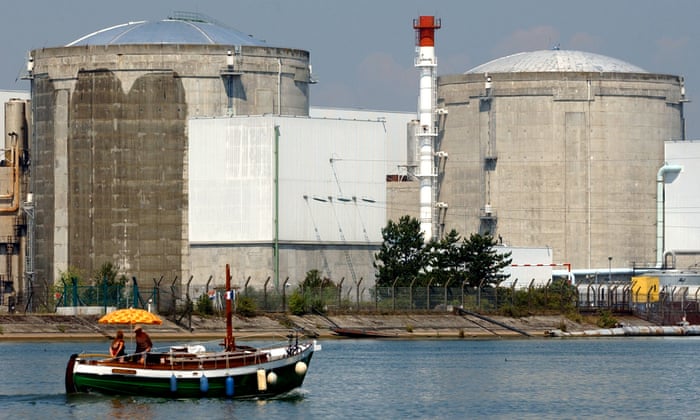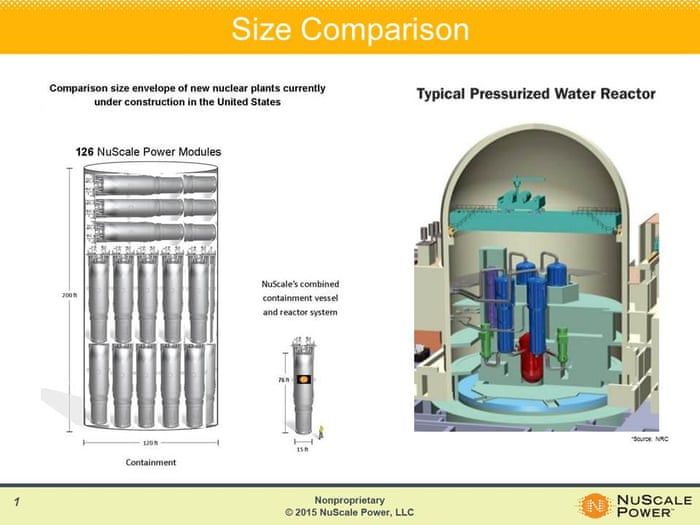Small nuclear reactors, financed by investors like Bill Gates, appear in the US as cheaper, safer alternatives to traditional designs of nuclear power plants

The compact design and other modern improvements, including the ability to install all parts in a factory rather than on a construction site, potentially make small modular reactors much easier to build than conventional nuclear power plants which cost around $10bn and take a decade to obtain permits and build. At a time when a significant number of existing nuclear power plants are struggling financially

“From an investment standpoint, this makes it easier to do because you don't have to put all the money up front; you can stagger when you build them,” said Gene Grecheck, a former president and the current co-chair of a policy advisory committee at the American Nuclear Society, which represents engineers and scientists. Grecheck said researchers are looking at other ways of improving nuclear technology.
The research is critical in deciding whether the design of small nuclear reactors has a strong business case. Emerging technology is designed to make nuclear power plants cheaper and safer. No pollutants are emitted by nuclear power plants, but modern models have become too costly to be a common climate change solution. The new technology has received substantial support from investors including Bill Gates.
The Utah team is not alone in the new technology development. In May, the Tennessee Valley Authority, which supplies power to nine million people in seven southeastern states, became the first to apply for a permit from the Nuclear Regulatory Commission to create a small nucleus.

The compact design and other modern improvements, including the ability to install all parts in a factory rather than on a construction site, potentially make small modular reactors much easier to build than conventional nuclear power plants which cost around $10bn and take a decade to obtain permits and build. At a time when a significant number of existing nuclear power plants are struggling financially

“From an investment standpoint, this makes it easier to do because you don't have to put all the money up front; you can stagger when you build them,” said Gene Grecheck, a former president and the current co-chair of a policy advisory committee at the American Nuclear Society, which represents engineers and scientists. Grecheck said researchers are looking at other ways of improving nuclear technology.
The research is critical in deciding whether the design of small nuclear reactors has a strong business case. Emerging technology is designed to make nuclear power plants cheaper and safer. No pollutants are emitted by nuclear power plants, but modern models have become too costly to be a common climate change solution. The new technology has received substantial support from investors including Bill Gates.
The Utah team is not alone in the new technology development. In May, the Tennessee Valley Authority, which supplies power to nine million people in seven southeastern states, became the first to apply for a permit from the Nuclear Regulatory Commission to create a small nucleus.



